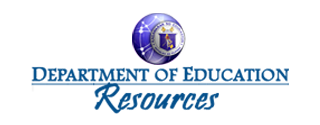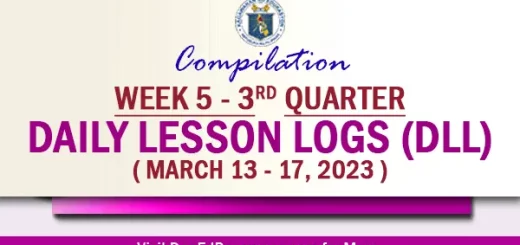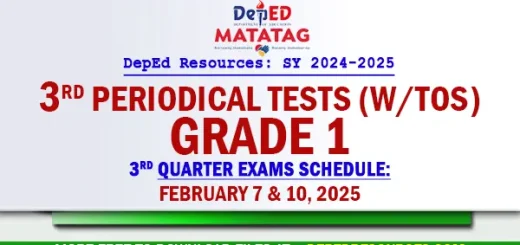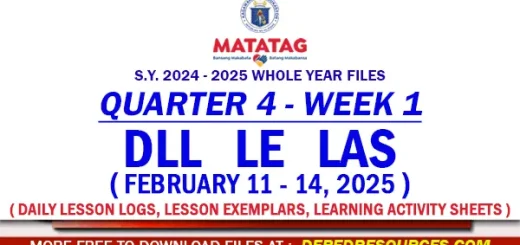GRADE 7 – 1st Periodical Tests – All Subjects with TOS
Good day teachers! We hope these help in the upcoming periodical tests! We are constantly uploading GRADE 7 – 1st Periodical Tests – All Subjects with TOS. You will find the Google download links below.
The framework for classroom assessment and evaluation
Any instruction has three main parts: the “WHY,” the “HOW,” and the “WHAT.” The “WHY” of instruction is identified by the purposes; the “HOW” is described by the plans; and the “WHAT” of instruction is revealed by practice.
The four components of classroom assessment and education are input factors, plans, practices, and purposes. The objectives a teacher establishes when teaching are known as instructional objectives. On the one hand, they offer guidance for formulating acceptable instruction, and on the other, they offer a foundation for figuring out whether a pupil has attained the goals a teacher set for them. They offer standards for measuring the results of pupils’ learning and tracking their progress.
Various goals can direct instruction in classrooms:
- language,
- strategic,
- socio-affective,
- philosophical, and
- method or process.
The language abilities that students are intended to gain in the classroom are referred to as language objectives.
“Strategic objectives” are those that deal with developing critical thinking, learning, and communication skills. “Conscious processes and procedures that enhance the comprehension, acquisition, and retention of new abilities and concepts” are referred to as learning processes.
Socio-affective objectives, such as alterations in attitudes toward the target language, the target language group, or the learner’s first language group, are changes in learners’ social behavior that come about as a result of classroom instruction. However, these goals are typically subordinate to those of language acquisition.
Philosophical objectives are broader-ranging than socio-affective ones in terms of how attitudes, values, and beliefs are changed.
The last type of objective is a technique or process objective, which describes a method, a process, an experience, a material, an activity, or another part of instruction. However, the impact of these objectives does not always benefit classroom education. For instance, they think philosophical goals are at least marginally helpful. Strategic goals are crucial for understanding student performance in class and are therefore crucial for lesson planning. They are, however, secondary to language learning; in other words, the efficient application of some tactics ought to promote improved second language acquisition and usage. Clearly, the evaluation of second languages is based on language objectives.
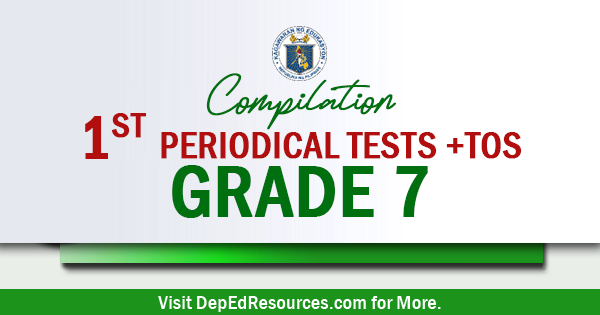
GRADE 7 – 1st Periodical Tests with TOS
- GRADE 7 1st Periodical Test in ARALING PANLIPUNAN
- GRADE 7 1st Periodical Test in ENGLISH
- GRADE 7 1st Periodical Test in MAPEH
- GRADE 7 1st Periodical Test in MATHEMATICS
- GRADE 7 1st Periodical Test in SCIENCE
- GRADE 7 1st Periodical Test in TLE
MORE TEACHERS FILES HERE
Please visit our website from time to time for new and unannounced additional uploads. Thank you.
You may also request for specific files in our Facebook Page.
Don’t forget to LIKE our Page!
Please LIKE and SHARE so everyone would benefit from these files. Thank you!
LIKE US on Facebook! Click Here.
“I cannot do all the good that the world needs. But the world needs all the good that I can do.”
―
 Learn about the information we collect and how it's used.
Learn about the information we collect and how it's used. Discover how we protect your data.
Discover how we protect your data. Understand your rights and choices regarding your personal information.
Understand your rights and choices regarding your personal information.